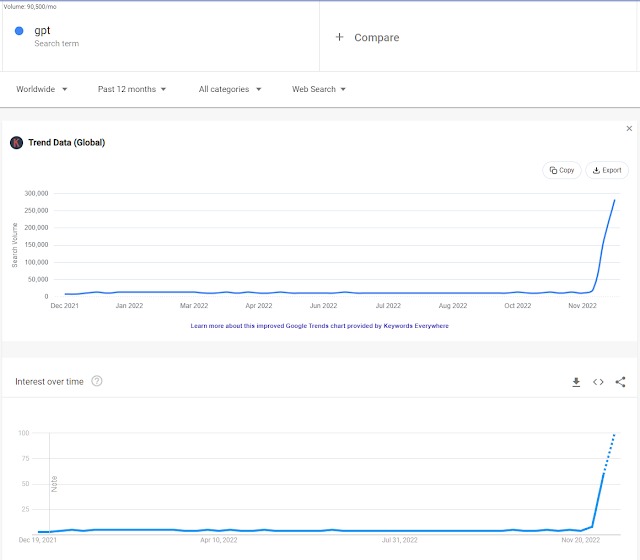Did Mythic, the AI Processor Startup, Fail because they Underinvested in Marketing?
I have been watching the nascent AI Processor market with interest - it's a brand new opportunity for semiconductors to address applications that didn't exist before. Here's a good primer from McKinsey. Mythic, a hot AI processor startup that raised $160+ Mn has unfortunately run out of money before reaching revenue. Mythic chips and eval boards have been available for over a year now, so one wonders if they were not able to generate enough demand.
It will be impossible to know exactly what went wrong from the outside looking in, but it still is an interesting exercise to take a look at their demand creation activities, specifically SEO, which by its very nature is public. SEO is a great sidekick to the traditional strategic marketing/business development activities and exhibits tremendous long tail effects.
First thing to do is to start looking for possible keywords/key phrases that prospects (customers, partners, job seekers) are using to frame their Google searches. In about 10 minutes, I was able to generate 50 possible combinations that are relevant to Mythic's business. Feeding this list into the bulk keywords tool from Keywords Everywhere allows us to see global search volumes, CPCs and trends helping distill it down to top 18 keywords. Of those, "ai at the edge" seems to be most popular. Also interesting is "analog inference" that is trending over the past few months - something to be aware of.
Next step is to check the search engine rankings for these keywords. For the sake of this blog, I will only use the first keyword. You can use Google (free) or Semrush (also free up to 10 searches) to see the top sites that rank for this keyword. Top semiconductor companies in the first ten results are Nvidia, ST and Avnet (a distributor). Mythic does not make an appearance on the first page, but Hailo does, not in the top 10 but way below the other three.
It's difficult for a startup to compete with Nvidia's website due to the huge volumes of organic traffic it generates and its domain authority, but let's analyze Mythic's web copy to see if it was optimized for search engines. They are using Google Analytics to track visitors so that's a good start. We will once again use the Keywords Everywhere tool.
Unfortunately it's not -Mythic has wasted its digital real estate space by optimizing copy for keywords that no one is looking for - the keyword densities are a dead giveaway. This is not a Mythic specific problem, as many companies fall into the same trap by harping on irrelevant buzzwords and proprietary names, when in fact writing content that matches what the users are looking for is the need of the hour. Did Mythic think that writing blogs and building a subscriber base would be better than SEO? That may be why several low search volume keywords are found in the keyword list.
It's quite clear that Mythic made no efforts to use SEO, the lowest cost demand creation channel out there, to promote its products. Demand creation is the lifeblood for all businesses. If you don't invest in it, it's difficult to succeed in a competitive market. Companies need to be careful that in their quest to build a content centric approach, they don't forget the basics of SEO. SEO should be a key element of every content marketing strategy. As I said previously, it's not certain that SEO would have saved Mythic, but it would have helped, among other things.
Is any AI chip company using SEO? At the first blush, Hailo.ai seems to be the only one that is making an investment in SEO. Is it perfect? No, but its web pages are consistently ranking in Google searches. I will write about it in another blog.






Comments
Post a Comment